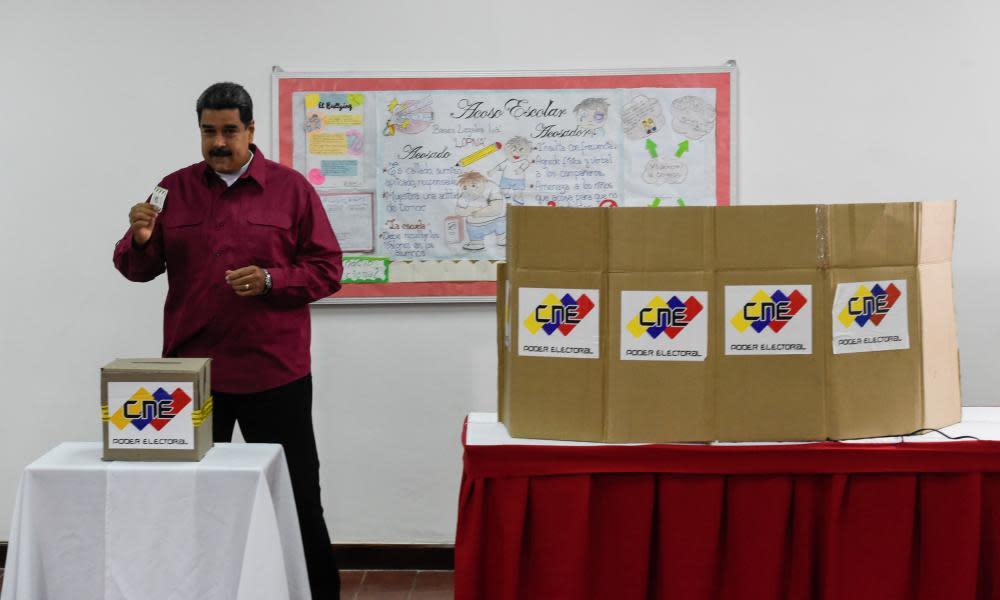President Nicolás Maduro set to win election despite economic crisis

Venezuelan president Nicolás Maduro looked set to secure a second six-year term on Sunday despite leading his oil-rich nation into a shattering economic depression that has prompted one of the worst migration crises in recent Latin American history.
South America’s fifth most populous nation is racked with hyperinflation, crime and chronic shortages of food and medicine while critics accuse Maduro of turning a once vibrant democracy into an increasingly dictatorial state.
But as he cast his vote in the capital, Caracas, at 6am local time Maduro claimed that a veritable democratic “fiesta” was under way.
“Today is a historic day that no-one will forget,” the 55-year-old former bus driver and foreign minister told Telesur, Venezuela’s state-run broadcaster. “It’s a day of celebration … We are celebrating the freedom … that we enjoy in this country … of opinion, of action, of mobilization, of thought – and the freedom to choose.”
Maduro loyalists parroted that message as they headed out to vote for the man who inherited Hugo Chávez’s ‘Bolivarian revolution’ after his death in 2013. “Look at the people in the streets!” Delcy Rodríguez, the president of Maduro’s widely reviled constituent assembly, declared. “A big democratic fiesta is taking place in Venezuela.”
Critics ridiculed those claims, denouncing the vote, which Venezuela’s mainstream opposition is boycotting and the United States has called a sham, as a “mojiganga” (farce). “These are not elections. They are a farce intended to keep Maduro in power without popular support,” Juan Pablo Guanipa, a prominent opposition leader, told Reuters.
Amid reports that polling centres had failed to open in some opposition areas and of eerily quiet streets, Maduro’s main opponent, Henri Falcón, issued a final plea for voters to exercise their democratic right. “The day has come to make history and to save Venezuela,” he tweeted.
That looks unlikely, with experts predicting the lowest voter turnout since Chávez was first elected in 1998 will help return Maduro to power despite the social, political and economic turmoil gripping his country.
In a televised address on the eve of Sunday’s vote, Maduro rejected claims Venezuela was “in ruins” as an imperialist smear campaign designed to topple his government.
“[Instead of attacking Venezuela] why don’t they deal with the humanitarian crisis in Africa: the unemployment, the hunger, the poverty, the lack of education and services?” he asked. “Why don’t they deal with the killing and the crisis in Gaza and the murders of dozens of men and women who are fighting for their land in Palestine?”

 Yahoo News
Yahoo News 
